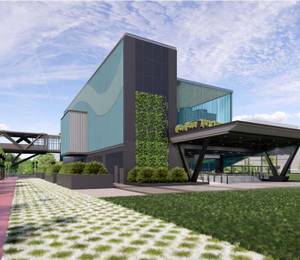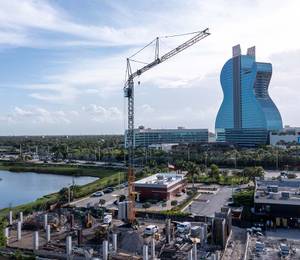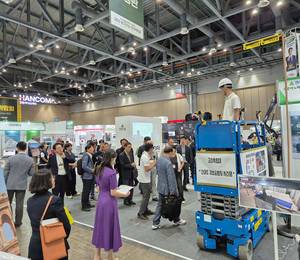Bouygues Construction and Hoffmann Green Cement Technologies have signed a collaboration agreement for an initial period of 30 months, which aim to devise and test concrete formulas using a new cement manufactured with the technology known as H-EVA1.
Hoffmann Green Cement Technologies has developed this innovative technology and the company said it offers a carbon footprint between 70% and 80% lower than a conventional Portland cement.
The partnership between both parties constitutes a strategic alliance, which will contribute to making the construction sector more responsible and more sustainable, given the fact that cement reportedly accounts for 6% of greenhouse gas emissions in France.
Studies jointly carried out by the partners will make it possible to obtain the certifications needed for operational implementation on Bouygues Construction sites in 2020.
Bouygues Construction is a global player in construction, with operations in more than 60 countries. The company has also been active in the Asian market. “As a leading player in the construction sector, Bouygues Construction needs to meet the challenges of growing urbanisation while reducing its environmental impact,” said Philippe Bonnave, chairman and chief executive of Bouygues Construction.
“The partnership we have signed with Hoffmann Green Cement Technologies is an opportunity to jointly develop an innovation for our sector that is disruptive, because it emits less CO2, and to act to make construction more sustainable for our customers.”
Julien Blanchard, chairman and co-founder of Hoffmann Green Cement Technologies added, “The construction industry today has to change quickly in the face of climate issues and the advent of new regulations. To meet these challenges, we have created new cements guaranteed to be clinker-free and based on industrial by-products.
“Our industrial approach to cement is genuinely an eco-responsible and revolutionary solution on the construction market. This meaningful partnership is a perfect illustration of Bouygues Construction’s desire to sign up to disruptive innovations such as ours, with the aim of getting the construction sector to commit itself sustainably, and immediately, to a drastic reduction in CO2 emissions.”











